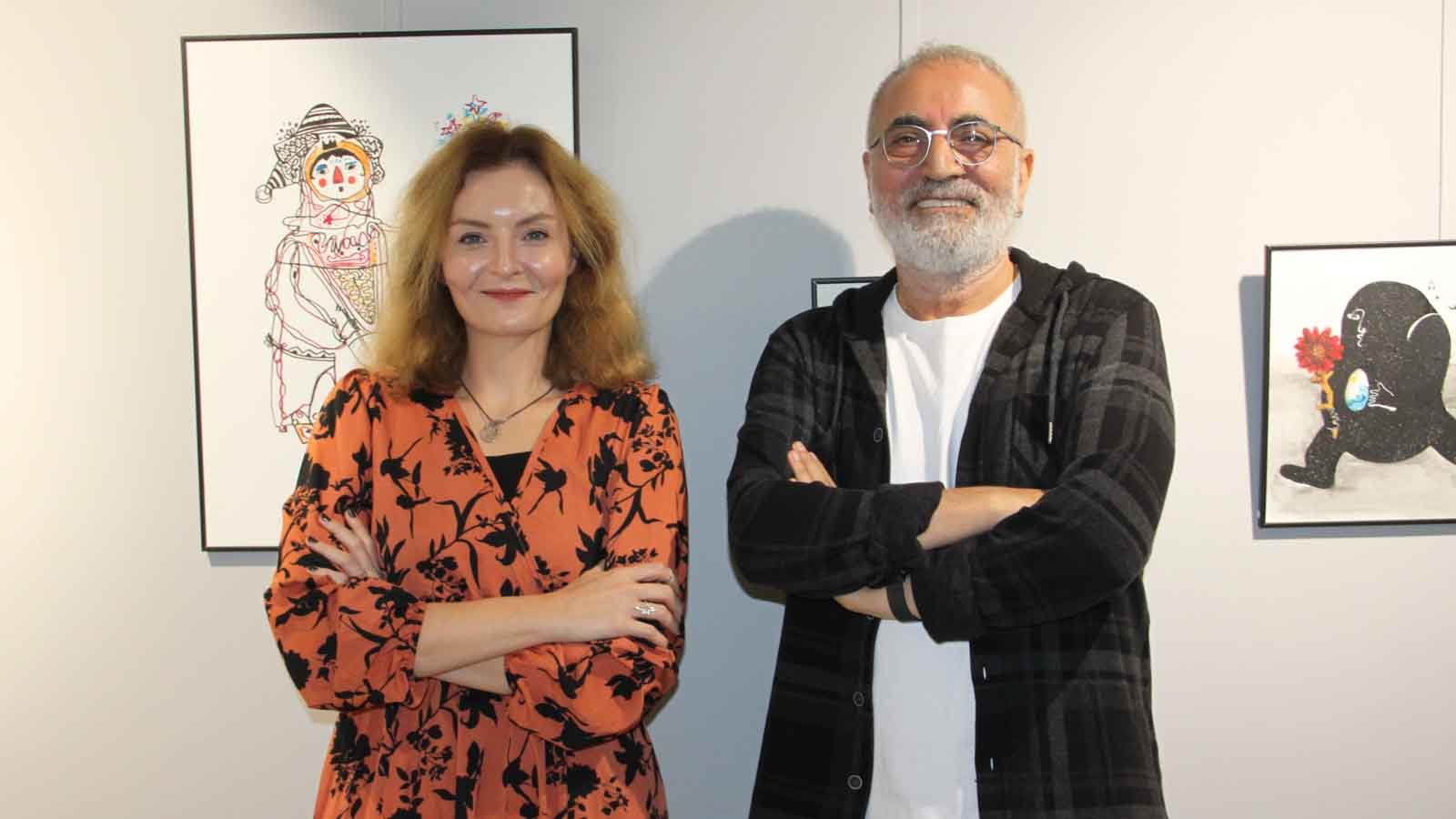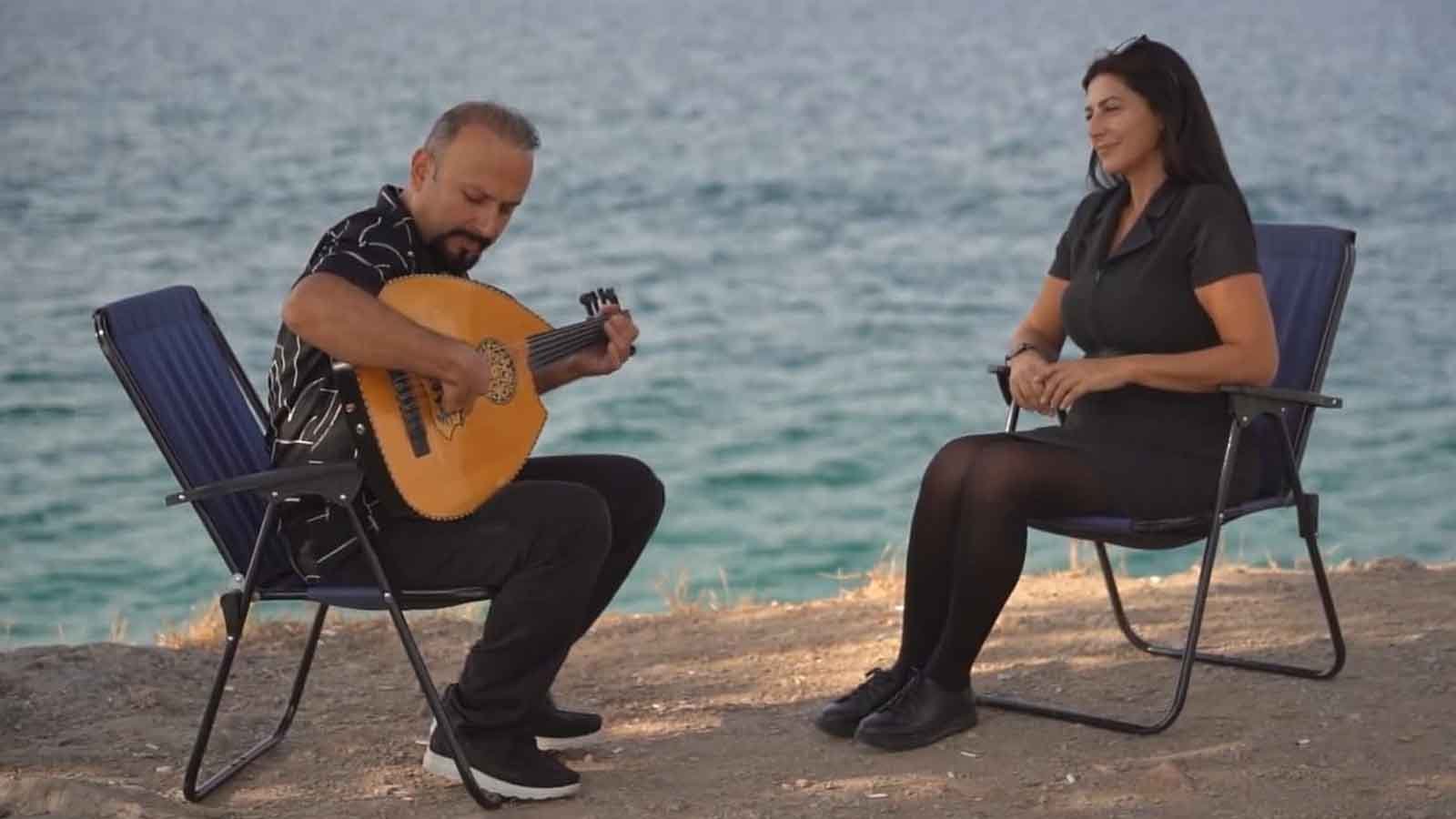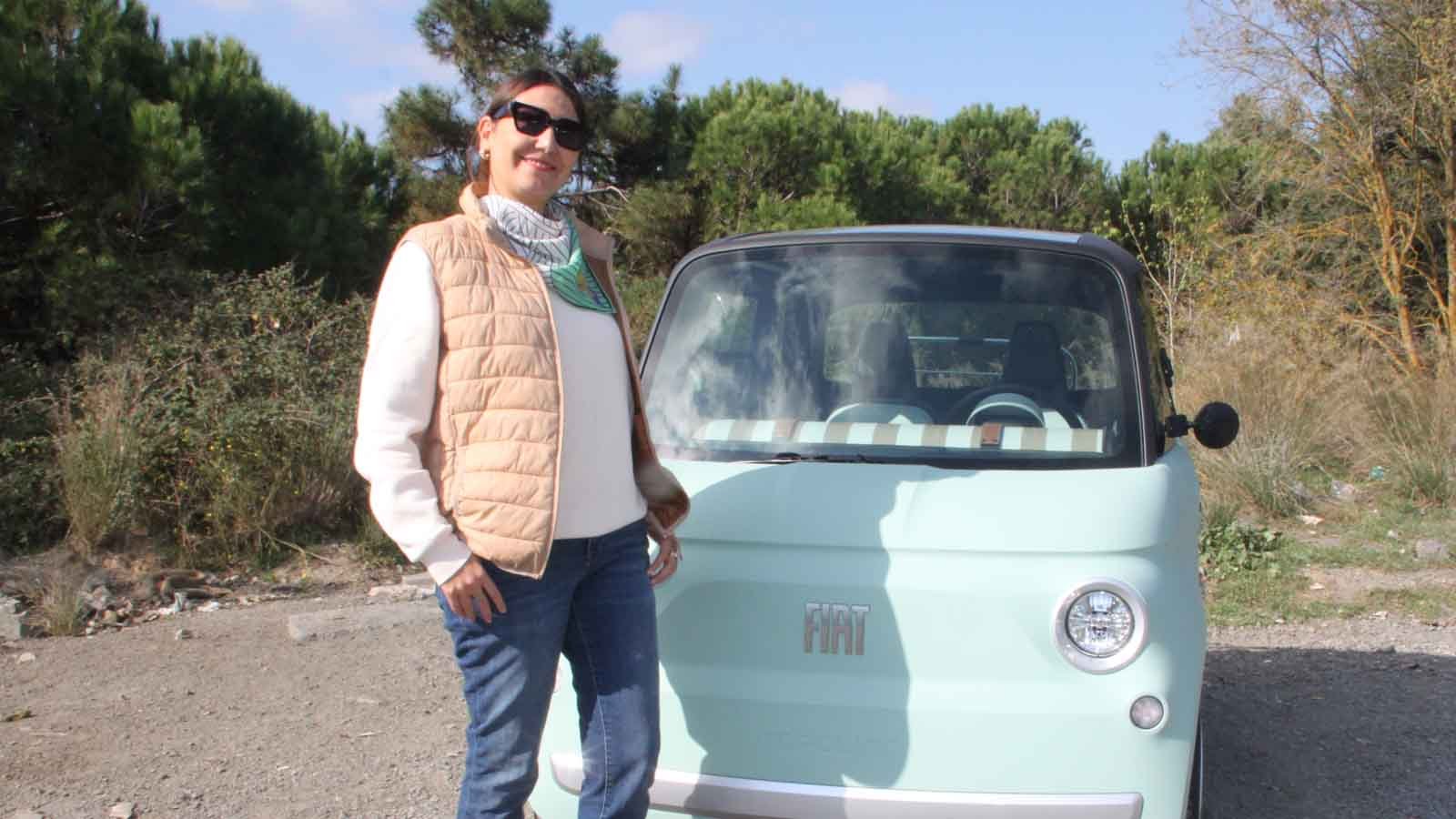“Every day when I wake up, I feel the joy of leaving an impact on the world.”
In the third installment of our “Conversations in Pursuit of Happiness” series, our guest is Hayri Dağlı, the founder and Chairman of the Board of the International Development and Environment Association – IDEA Universal.
Interview by: Özge Zeki
Hayri Dağlı is a well-known figure, dedicated to volunteering and civil society work. He has an inspiring life story. After completing his geography education at Dokuz Eylül University, he pursued a master’s degree at Stockholm University. During his volunteer work with civil society organizations, a trip completely changed his life. While climbing Mount Kilimanjaro, he was deeply moved by the water journeys of young girls he observed in Africa and decided to take action on the issue.
This story began 12 years ago, and today, Hayri Dağlı has created a civil society organization that has reached 1 million people. He is also the recipient of numerous international awards.
Today, there is a greater need than ever for social responsibility and volunteer work. It is particularly encouraging to see this awareness growing among young people. In our delightful conversation with him, we discussed his work, projects, and the happiness that comes from making a difference through volunteering.

Hayri, welcome, and thank you for joining our channel. Our first question is: What does happiness mean to you? We’re starting with a tough one, but we’d love to hear your perspective.
– This is a question I often ask myself. For me, happiness is waking up in the morning as part of a passion and a dream. It’s working every day without losing enthusiasm and striving for a better world. That might be my definition. I’m fortunate to be able to do this. I’ve been able to build such a life, and in that sense, I feel very lucky and happy. Every day, I experience the joy of leaving an impact on the world, leaving a mark on people, nature, and the greater whole.
Yes, in a way, it’s also a driving force in life—a very powerful source of motivation. It must be especially significant in the work you do, right?
Absolutely. Seeing results, in particular, makes me happy. Traveling to regions that no one goes to, wants to go to, or dares to go to, and leaving a mark on the lives of those forgotten people, making a difference… That’s the core motivation behind why we wake up every day with excitement and joy and work tirelessly.
Yes, this is incredibly valuable. At the same time, you’re working in a very fast-paced field. We’d love to hear your story from the beginning. While many people know you, for those who don’t, we’d like to hear it in your own words. First, what does a typical day look like for you? You do such unique work, and your organization operates on a global scale. Could you share how a day in your life unfolds?
Actually, no two days are alike. I live a life without routine. Sometimes I find myself in Madagascar, sometimes in Tanzania, The Gambia, Senegal, or Uganda. Other times, I’m in Turkey’s earthquake zones, working with seasonal agricultural workers, in Nepal, or at United Nations meetings in the U.S. So, while there’s no routine, the workload is intense—fast-paced and demanding. But this intensity doesn’t bring exhaustion. I feel fortunate because seeing the results of our work every day overshadows fatigue and makes it almost forgettable. I may get physically tired, but spiritually, my excitement remains alive.
What we do creates lasting impact, which is the most important part. Our foundational philosophy has always been about teaching people to fish rather than giving them fish. We’ve never approached our work with the mindset of “We’re helping.” Instead, we’ve worked every day to create a world where help is unnecessary. Seeing the results of this mission helps overcome the fatigue and intensity and brings us happiness while deepening our connection to our work.
That’s such an important point because this approach really distinguishes IDEA Universal. I realized how significant this was after I became involved. In Turkey, similar organizations tend to adopt a “Let’s help, let’s solve their immediate problems” approach. However, your focus is on sustainable, lasting transformation. This is achieved through initiatives like smart villages, but before we get to that, could you share the story of your trip to Mount Kilimanjaro, which you mentioned earlier? How did that journey become a turning point in your life? Could you compare who you were then with who you are now? What has changed?
It’s been 12 years, and almost nothing in my life has remained the same since that day. Fundamentally, my perspective on material things has shifted. Back then, I was a white-collar professional at a point in life where many people aspired to be. I lived alone in Moda, Kadıköy, had my own house, and owned a car. However, during the climb, I realized that everything urban life offers us becomes meaningless. That trip created such a turning point in my life that I began questioning what we truly value. Are we going to find happiness in material things or emotions? Will we enrich our lives with possessions or something else entirely?
Now, I fill my metaphorical backpack with stories—human stories and tales of happiness. Instead of material wealth, my life has shifted toward searching for meaning and existential richness. When the pursuit of more money is replaced by the pursuit of meaning, your entire life changes fundamentally. Your perspective deepens in every way.
During that climb, you were deeply moved by the story of a young girl’s journey for water, and that’s how it all began. What happened next?
During my annual leave, I traveled to Tanzania for a climb on Mount Kilimanjaro and visited the Serengeti region. While wandering through villages, I came across children sitting on the ground, waiting in front of a blackboard in an open field. I asked them why they were waiting. They said they were waiting for their teacher, who had been sick and absent for 15 days. Yet, they were still waiting, believing the teacher would come one day. This touched me deeply.
I asked if they’d like to participate in some activities, and they eagerly agreed. We conducted ecology-themed activities with the children. However, I noticed that some girls didn’t attend. When I asked Fatima, one of the girls, why she wasn’t coming, she explained that she had to fetch water. She said she wanted to join so badly and that she dreamed of becoming a nurse.
Hearing her dream of becoming a nurse, I realized how nearly impossible it seemed under those circumstances. I asked myself, “How can I contribute to making this dream come true?” I accompanied Fatima on her daily water journey. We walked about 6 kilometers barefoot, and when we arrived, I saw that the water was nothing more than a muddy puddle.
We started with a clean water project in that village, followed by agricultural support and solar panels. I witnessed firsthand how a small touch could completely transform the life of a village. What we consider small may not be small for someone else. With this realization, we decided to expand our efforts, knowing that many other villages needed this kind of support.
I was aware that NGOs often had a negative societal perception. However, by establishing a transparent, accountable, and politically independent structure, we adopted an approach that empowered people to produce. Our mission is to work toward creating a world where no one needs help. Instead of distributing aid, I believe in supporting production, as it’s far more meaningful.
Sometimes people unintentionally cause harm while trying to do good…
Exactly. It creates dependency. If there’s hunger somewhere, you can’t solve it by distributing food. You need to establish a permanent and sustainable model there. This is precisely where the concept of smart villages emerged.
Smart Villages is an award-winning project with recognition from the United Nations. You’ve explained it many times and spoken about it at global summits. Currently, there are 350 villages across 10 countries, impacting populations of up to 2,000 per village. Could you elaborate on how these villages are established? The scale and self-sufficiency are truly distinguishing factors. What would you like to share?
Globally, 1 in 7 people lack access to water and food. These individuals, often located in Africa, live in extreme poverty, unable to meet their basic needs. This lack of access to essentials like clean water and food results in early deaths, especially among children, and keeps the average life expectancy as low as 48 years in some regions. It also limits people’s ability to dream and live the life they deserve.
Yet, this 1 in 7 also holds the potential to inspire permanent transformation for the other six. People of goodwill have the power and resources to ensure no one is left behind. That’s where we come in—building a bridge. Smart Villages ignite lasting change in forgotten, conflict-ridden, or drought-stricken geographies. From Madagascar to Tanzania, Gambia to Senegal, and Uganda to Nepal, we work in areas with severe challenges, such as high child mortality rates—where 2 out of every 5 children don’t live to see their 5th birthday, often due to waterborne diseases and malnutrition.
Our approach is not to distribute aid but to create sustainable systems for production.
- Step 1: Addressing Water Issues
We begin by solving the clean water problem through new wells, solar-powered seawater desalination systems, or rainwater harvesting systems. - Step 2: Establishing Agricultural Solutions
We create farmland and introduce drip irrigation systems, agricultural training, and seed banks to address food insecurity permanently. - Step 3: Providing Renewable Energy
Solar panels are installed to supply electricity to the village. - Step 4: Supporting Education
We focus on children’s education, establishing libraries and creating opportunities for children, especially girls, to attend school.
These steps enable villages to transition from a state of extreme need to self-reliance. While they may not resemble Swiss villages, they gain access to their most basic needs. Girls can go to school, and mothers can invest their agricultural income in their children’s education. The spark of transformation is ignited.
Today, approximately 1 million people live in our 350 smart villages across 10 countries. We don’t say we’ve “helped 1 million people”; we say we’ve enabled 1 million people to no longer need help. That’s what truly fulfills us.
Temporary solutions won’t change the world. To genuinely transform and improve our planet, we must focus on sustainable, long-term solutions. I closely follow global organizations addressing crises like climate change and food insecurity, and I’ve even spoken at some. While the outlook in recent discussions isn’t always encouraging, I remain optimistic.
Although the climate crisis deeply affects everyone’s life, it particularly impacts people in forgotten geographies even more. I believe the solution can be generated by the generation we are part of.
Yes, the planet is in a serious crisis. Wars are looming over us, and the climate crisis is affecting lives every day. Climate migration affecting millions of people is being discussed. However, there is also a solution. There are organizations doing goodwill work on this, and there are people working every day to generate solutions. I believe that at some point, these people will find a way out of the difficult situation the world is in by creating solutions. We are carrying out projects that directly affect the climate crisis. We implement all our projects using climate-friendly, clean energy sources such as solar energy. Additionally, methods like waterless farming or drip irrigation, as well as technology and innovation, are included in our work. As more organizations reach this awareness, everything will be better for the world. At this point, I would like to emphasize the importance we place on innovation. Sustainability and transparency play a big role in the development of this model. The ability to easily track progress through platforms like Google Earth on the smart village website is an example of this transparency. When you contribute to a smart village, you can immediately see what changes have occurred in that village.
Transparency and accountability are at the top of our organizational philosophy. I never thought that good people were few, and in this journey, I have seen the proof of that. 100,000 people believed in our dream by donating and became part of the change. From a shopkeeper in Japan to a teacher in America, to a nurse in Sweden, many people supported us. This shows how realistic the dream we put forward is.
The main reason we gained the trust of our donors is that we report everything we do transparently. Through tools such as technology, mapping, and imaging systems, we show where the donations go and how they are used. This motivates people to support even more by seeing that their donations are reaching their intended destinations. The approach to NGOs is a complex situation. Just like companies, there are organizations that do their work properly and others that do not. There are transparent, independent organizations that account for every penny, as well as those with bad intentions. People need to do thorough research before getting involved with an organization to assess whether the intention is truly right.
They need to investigate whether there are other motivations behind it, and in recent years, it has become much easier to research these issues. In the past, especially 15 years ago, accessing such information was quite difficult. However, now, thanks to the internet, it is much easier to access information and verify the accuracy of what is being done. There are many sources available; people can research from there and follow legal processes. Additionally, they can find transparency indicators such as annual reports, boards of directors, and financial data on the organizations’ websites.
Do you observe a change in the approach of young people? Especially, young volunteers often visit to listen to your story, get to know you, and offer solutions from their professional fields. How is the feedback on this? How do you think the change compares to 15-20 years ago?
I believe there has been a positive development. Every day, more young people are joining organizations like ours to add depth to their lives in their search for meaning. The number of people who want to volunteer and those seeking professional opportunities is steadily increasing. The new generation wants to be involved in more conscious and meaningful projects. This trend highlights the growing importance of volunteer work and social good. Success is no longer measured only by academic standards. In the new world order, success is intertwined with values like empathy and contributions to society. Therefore, even prestigious universities no longer focus solely on academic success, but also value projects that create social benefit. I think this approach is very correct because academic success alone is not meaningful; it needs to be combined with impact and benefit.
The International Development and Environment Association – IDEA Universal also has important projects in Turkey. You played an active role during the February 6 earthquakes. You quickly mobilized during the earthquake, providing support with needs such as off-road vehicles, water tanks, shower and toilet systems. Later, you developed life station projects to create permanent solutions for water, energy, and communication issues. You also have an education project…
Life Stations stand out as an innovative solution that addresses the needs of clean water, energy, and internet in tent or container cities. These structures, powered by solar energy and providing excess energy to the region, also purify water through an 8-step system. This innovative approach is of great importance in offering permanent solutions in crisis areas.
We developed this as a model. We placed 10 different tent and container cities in the earthquake zone. However, our dream is to place these life stations in the disaster assembly areas of all cities in Turkey at risk of disasters. Work is ongoing, especially for the anticipated large earthquakes. These will be life-saving stations, as the name suggests. We are open to new projects and would be happy to collaborate with companies or philanthropic individuals who want to be part of this dream.
One of the key aspects of the association is education. A smart learning laboratory project aimed at children of seasonal agricultural workers is being carried out in Karataş. Here, children are taught through a play-based educational module. The smart learning laboratory offers a child-centered model, not teacher-centered, using technology in areas such as literacy, mathematics, logic, and creativity in marginalized and disadvantaged areas where educational gaps are very deep. This model allows children to learn according to their own learning pace and helps neutralize educational disparities. This project, aimed at the children of seasonal agricultural workers, seeks to prevent them from falling behind in education. Unlike traditional education, where a teacher must address 30-40 children at the same time—often causing some children to get bored or struggle—this model allows each child to learn at their own speed.
We believe that children should not be left behind in education. Children left behind become a bigger problem for society. We must approach every child equally and bring them into society and the future.
These efforts are taking place in challenging geographies. Touching people’s lives in physically and psychologically demanding regions during times of crisis is a challenging process. However, these challenges make sense when we choose to do something instead of just watching. Rather than being spectators, we choose to be part of the change, and that gives us strength. While negative thoughts can lead to inaction, taking action helps us maintain our positivity.



























